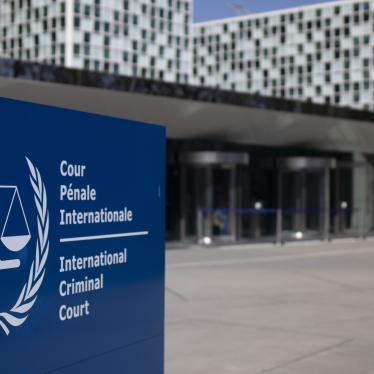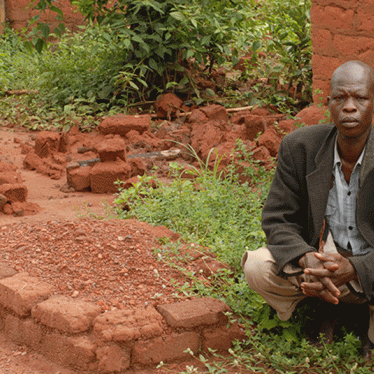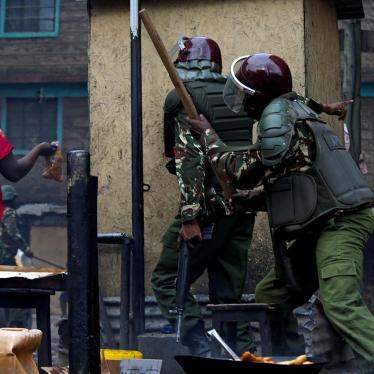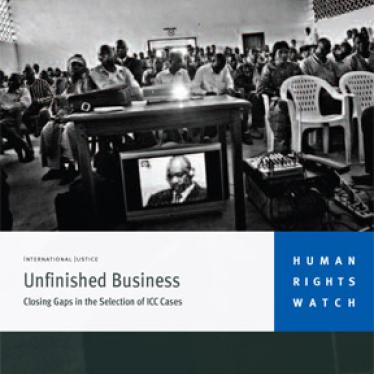As the Kenyan authorities’ stubborn refusal to carry out their primary responsibilities to provide justice have made clear for victims of Kenya’s post-election violence, the International Criminal Court (ICC) is their only hope for redress.
The International Criminal Court prosecutor Fatou Bensouda is seeking an adjournment in the trial of President Uhuru Kenyatta of Kenya. His trial was scheduled to begin in February on charges of crimes against humanity related to the country’s 2007-2008 post-election violence. She said that after the recent withdrawal of two key witnesses, she no longer has sufficient evidence and needs more time to complete investigations to determine whether she can proceed with the trial.
A separate trial of Deputy President William Ruto and a co-defendant on related charges began in September. While this turn in the case does not go so far as to drop the charges against Kenyatta, it will nonetheless be deeply distressing to all those who have looked to the ICC to deliver justice for murders and displacement, when none has been on offer in Kenya. The move does not come as a complete surprise, however.
The Kenya cases have been dogged by difficulties. Several witnesses in both cases have withdrawn, amid reports of pressure and bribes and a climate of hostility in Kenya against those speaking up on behalf of justice, stoked by abusive social media campaigns and utterly unchecked by the Kenyan authorities. In August, the ICC issued an arrest warrant for a Kenyan journalist accused of bribing witnesses to withdraw in the Ruto case. The ICC’s own witness protection programmes did not seem up to the task, a signal that it needs to address the problem.
The Kenyatta administration, which came into office in April, has pledged its cooperation, as it is obliged to do as an ICC state party. Both Kenyatta and Ruto have continued to appear voluntarily in the cases against them when required to do so. But the prosecutor has also complained that the Kenyan government has been recalcitrant in handing over documents or providing access to potential witnesses. Earlier this month, the prosecutor asked the ICC’s judges for a formal finding of non-cooperation against Kenya for failing to provide Kenyatta’s financial records.
The government has also mounted an intense political campaign abroad against the ICC, charging that the cases are an affront to national sovereignty and seeking the support of the African Union and the United Nations Security Council in its efforts to have the cases deferred, dropped, or returned to Kenyan courts. At an October summit, where the AU called for immunity from prosecution before international courts for sitting heads of state, Kenyatta termed the ICC to be a “toy of declining imperial powers”. Kenya also successfully pressed ICC states parties at their annual meeting in November to change the court’s rules, in a bid to provide more leeway to Kenyatta and Ruto to avoid appearing in person during their trials.
But as Mark Kersten has alluded to in his blog post on Justice in Conflict, gaps in the prosecutor’s evidence may stem from missteps in the earliest phases of the investigation. Several ICC cases opened under the former chief prosecutor Luis Moreno Ocampo, who left office in June 2012, have stumbled as they have been tested in court – with charges dropped. They include cases against two other defendants initially named in the Kenya cases. Bensouda has been public and firm in her determination to strengthen the office’s investigations but it is unclear to what extent new measures can address problems in current cases.
There are difficult questions to be asked and answered but for now the key is what the judges will make of the prosecution’s request. The prosecutor’s clear-eyed view of her case is welcome and shows a commitment to her professional responsibilities. But if she is given more time, we look to her office to do what she indicated it would in her statement — that is, all it can to pursue justice. As the Kenyan authorities’ stubborn refusal to carry out their primary responsibilities to provide justice have made clear for victims of Kenya’s post-election violence, the ICC is their only hope for redress.









